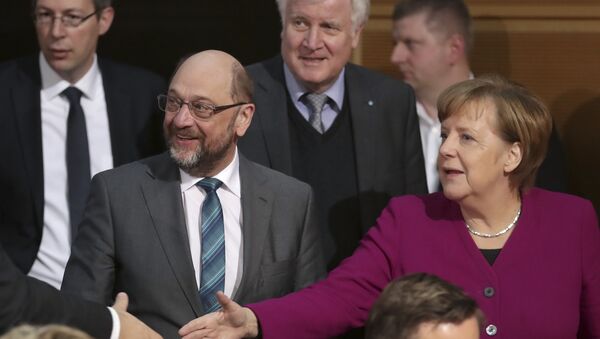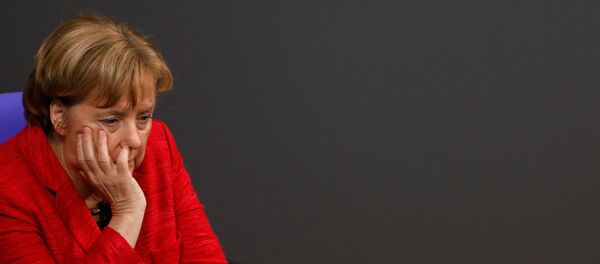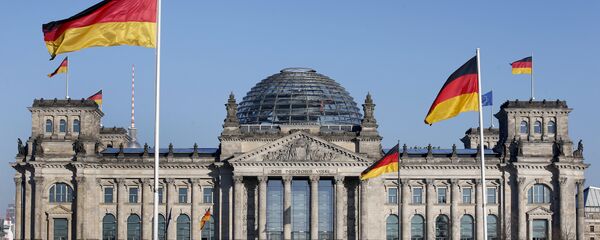Almost 463,000 SPD party members started voting on February 20. After the vote count is completed later in the day, the results will be transferred to the SPD headquarters in Berlin on Saturday. The following day, March 4, the results will be announced. The question remains whether the SPD will have enough votes to enter the grand coalition, or if Germany will face a new parliamentary election. Merkel's ability to retain her post is also up in the air.
At the end of September, Germany held parliamentary elections, where no party emerged with an absolute majority. As such, negotiations on forming a coalition began shortly thereafter. The draft coalition agreement between the SPD and CDU/CSU bloc was presented on February 7 in Berlin. Preliminary estimates say that the government may be formed in March or April.
Late on February, the CDU congress supported the coalition agreement, which would become the foundation for the new German government.
Displays of Optimism
SPD leaders have been pointedly optimistic. The party's new secretary general, Lars Klingbeil, told the BILD magazine that he was "sure that the majority will support the coalition agreement." Minister-President of Rhineland-Palatinate Malu Dreyer noted in her interview with N24 TV channel that "we have no alternative, no one wants new election." The proposed new SPD chair, Andrea Nahles, who needs to be officially elected at the party congress on April 22, told the DPA news agency that the results "will be better than many fear" and added that she had no Plan B. According to the former party leader and the current German foreign minister, Sigmar Gabriel, there are no doubts that the majority will vote for the coalition agreement.
At the same time, Kevin Kuehnert, head of the SPD’s youth organization Jusos and also a leader of the opposition to the grand coalition, has said he is sure the majority of Social Democrats would reject the idea of forming a new coalition with Merkel.
The previous election in 2013 resulted in exactly the same government composition. The SPD opposition directly correlated with the party’s falling ratings — leading to the party’s lowest ever results in the September election — after working with Merkel's alliance for four years.
If They Say Yes
If the SPD votes for the agreement, the next step would be to re-elect Merkel as chancellor. This would take place in Bundestag on March 14.
According to the DPA news agency, Hamburg Mayor Olaf Scholz will become vice-chancellor and minister of finance. Among the possible candidates for the Foreign Ministry office are Justice Minister Heiko Maas, incumbent Minister of Labor and Social Affairs Katarina Barley and Bundestag Vice President Thomas Opperman.
Should he be appointed, Scholz would have to choose his successor in Hamburg, a city with the status of a federal state.
If They Say No
If the SPD refuses to create a government together with the CDU/CSU alliance, President of Germany Frank-Walter Steinmeier would have to meet with Chancellor Angela Merkel.
Steinmeier could also dismiss the government within a week after Merkel’s election and hold new a election during the following 60 days.
This would only worsen the SPD's internal crisis. Nahles, as an author of the coalition agreement, would withdraw herself from consideration for party leadership, while 28-year-old Kuehnert said earlier that he was not ready to lead the SPD. It is unclear who will be the SPD candidate in the future elections. After Martin Schulz resigned as party leader, the SPD's ratings dropped lower than 20 percent.
The new election could also be the end of Merkel’s political career. The opposition in the CDU has demanded reforms and new people. She would also be held responsible for the failure to form the government. Possibly, Annegret Kramp-Karrenbauer, the CDU new General Secretary, will lead the party and the alliance in the election.




